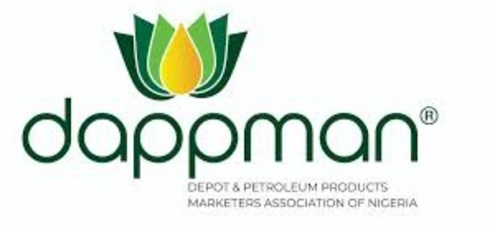The Depot and Petroleum Products Marketers Association of Nigeria (DAPPMAN) has urged government to address the nation’s aging pipelines, inefficient ports, and infrastructure gaps.
DAPPMAN Chairperson, Mrs Moroti Adedoyin-Adeyinka, made the appeal on Wednesday during the OTL Africa Downstream Week 2025 in Lagos.
She was represented by Mrs Ngozi Ekeoma, Group Managing Director of Nepal Energies Ltd, who delivered a paper on trade and infrastructure challenges in Nigeria’s downstream sector.
Adedoyin-Adeyinka said the Dangote Refinery’s 650,000 barrels-per-day capacity marks a historic step toward ending fuel imports but warned weak infrastructure could undermine its impact.
She noted that Nigeria’s pipelines, ports, and storage depots need urgent rehabilitation to support new refining capacity and improve supply chain efficiency.
According to her, most of the country’s pipeline network, built over 40 years ago, suffers from vandalism, under-capacity, and poor maintenance.
She said these problems force marketers to depend heavily on road transport, increasing costs, delaying distribution, and exposing products to risks.
The DAPPMAN leader also identified shallow drafts, congestion, and cumbersome customs procedures at ports as barriers to efficient product movement.
She urged government to digitalise port operations, simplify customs processes, and improve turnaround times to boost trade competitiveness.
Adedoyin-Adeyinka said the Petroleum Industry Act provides a strong foundation for reform through the NMDPRA and the Midstream and Downstream Gas Infrastructure Fund.
However, she expressed concern over slow implementation, weak coordination, and policy delays that create uncertainty for investors and limit sectoral reform.
She called for a Downstream Infrastructure Implementation Taskforce within the NMDPRA to fast-track projects, harmonise tariffs, and ensure open access to facilities.
She emphasised that the PIA must move from paper to practice through transparent tariffs and effective deployment of the MDGIF to close logistics gaps.
Adedoyin-Adeyinka said new private and modular refineries in several states signal Nigeria’s move toward fuel self-sufficiency.
She warned that this progress must be supported with strategic investments to prevent future distribution challenges.
She proposed developing pipelines linking the Dangote Refinery to inland depots, expanding northern storage, and building digitalised truck parks for safer operations.
On regional trade, she called for harmonised product standards within ECOWAS and AfCFTA and the creation of cross-border depots in neighbouring countries.
She added that aligning infrastructure with refining capacity could position Nigeria as Africa’s leading downstream logistics and energy hub.
Adedoyin-Adeyinka urged support through infrastructure tax credits, energy bonds, and local financing to empower indigenous marketers and logistics operators.
She said domestic refining marks a turning point for Nigeria’s downstream sector but warned success depends on transparency and regulatory consistency.
“The end of fuel imports is near. But progress depends on whether our infrastructure and policies match our refining growth,” she said.
She added that with accountability and urgency, Nigeria could meet its fuel needs and become West and Central Africa’s energy trade hub. (NAN) (www.nannews.ng)


Comment here